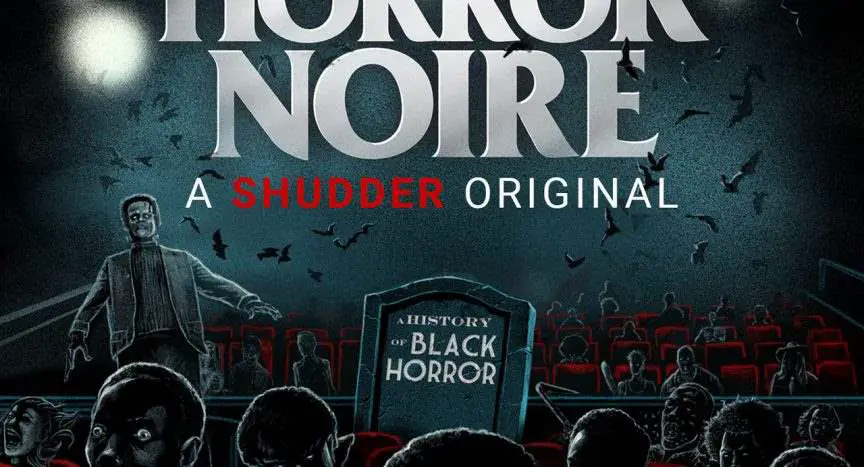Welcome to Blood on my Sofa! Each month I will be providing you with a movie recommendation. It won’t be just any movie, but a movie I watched during the previous 30 days that really rocked my world. In this installment, we will be taking a look at Horror Noire: A History of Black Horror.
Every now and then, we are blessed with a horror film that offers more than just scares. We get a chance to witness the telling of a heartfelt story, one with layers of character development, plot twists and life lessons. But even more uncommon is a horror that provides an honest history of the world, one that exposes the true nature of intolerance to change within a nation. And allow me to take it a step further, to the rarest of the rare, to films that not only talk about history, but become a part of history itself. A film such as this becomes relevant because of many factors, even one as clear-cut as a title that reveals the importance of film to humanity, without the viewer ever having to see a single frame. This February, a film with this kind of power arrived. The streaming service Shudder has provided us with this unparalleled documentary, beautifully titled Horror Noire: A History of Black Horror.
The film is based on the book by Dr. Robin Means Coleman. Horror Noire gives us the chance to watch and listen to new and seasoned actors, filmmakers, and educators in the horror entertainment industry. Directed by Xavier Burgin and written by Ashlee Blackwell and Danielle Burrows, Horror Noire: A History of Black Horror is appropriate for anyone and necessary for everyone.
The film removes a veil. It uncovers the struggles that black people have endured in horror. In a seamless flow, it takes us through and explains clips from classics such as Night of the Living Dead (1968), Blacula (1972), Abby (1974), The People Under the Stairs (1991), Candyman (1992), Tales from the Hood (1995), Eve’s Bayou (1997), and more. By the time of these films, we were beginning to see black actors in lead roles.
Also See: Blood on My Sofa: Let’s Talk TerrifierHowever, Horror Noire: A History of Black Horror unmasks the deviant behavior of the film industry before these films existed. At a point in time, black people were only allowed to play servants, housekeepers, or servers to white actors. Though there appeared to be growth in the forthcoming years, talented actress Rachel True (The Craft, Embrace of the Vampire) reveals in the documentary that her roles in the ’90s simply served as a supporting actor, often asking the white lead if he or she was okay during times of turmoil. Her revelation on how many different ways to say “Are you okay?” provided audiences with both humor and hurt. Similar stories mirrored hers from legends such as Tony Todd (Candyman, Final Destination), Keith David (The Thing, They Live), Loretta Devine (Urban Legend, Urban Legends: Final Cut), Ken Foree (Dawn of the Dead, Zone of the Dead), and Kelly Jo Mintor (The People Under the Stairs, A Nightmare on Elm Street 5: The Dream Child).

Painting the scenes of struggle behind the camera were seasoned directors Rusty Cundieff (Tales from the Hood, Tales from the Hood 2), Ernest R. Dickerson (Bones, Juice), William Crain (Blacula, Dr. Black, Mr. Hyde), and more.
The proudest part for viewers is witnessing black people elevated and refusing to remain limited by industry standards. There was a celebration for the newer black directors such as Jordan Peele, and the worldwide releases of films with black leads, e.g. Get Out (2017) and The Girl with All the Gifts (2016). What remains evident is that there is still more work to accomplish for all races to be considered equal in the entertainment industry.
There is so much to learn in this documentary. But aside from what it teaches is what it initiates. After the film ends, a conversation begins, though not just about horror, but also about film, acting, black culture, inequality, representation, misrepresentation, perseverance, triumph, and people, legends, trailblazers–anyone and everyone who paved the way for the day we all will witness an all-inclusive presence in cinema.

